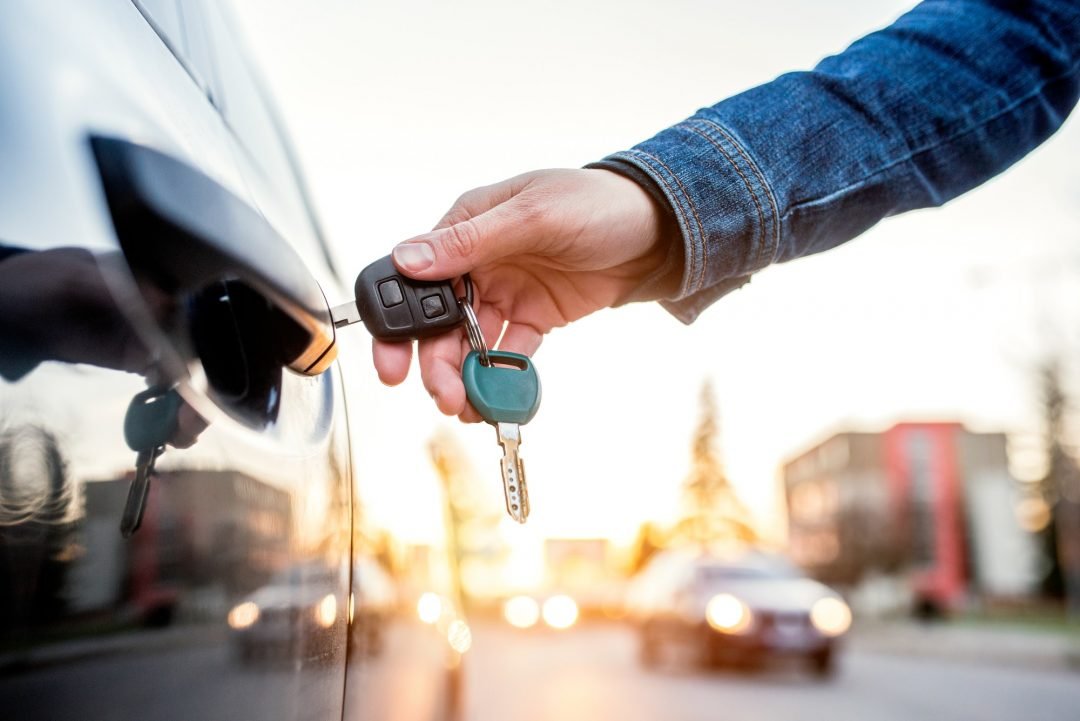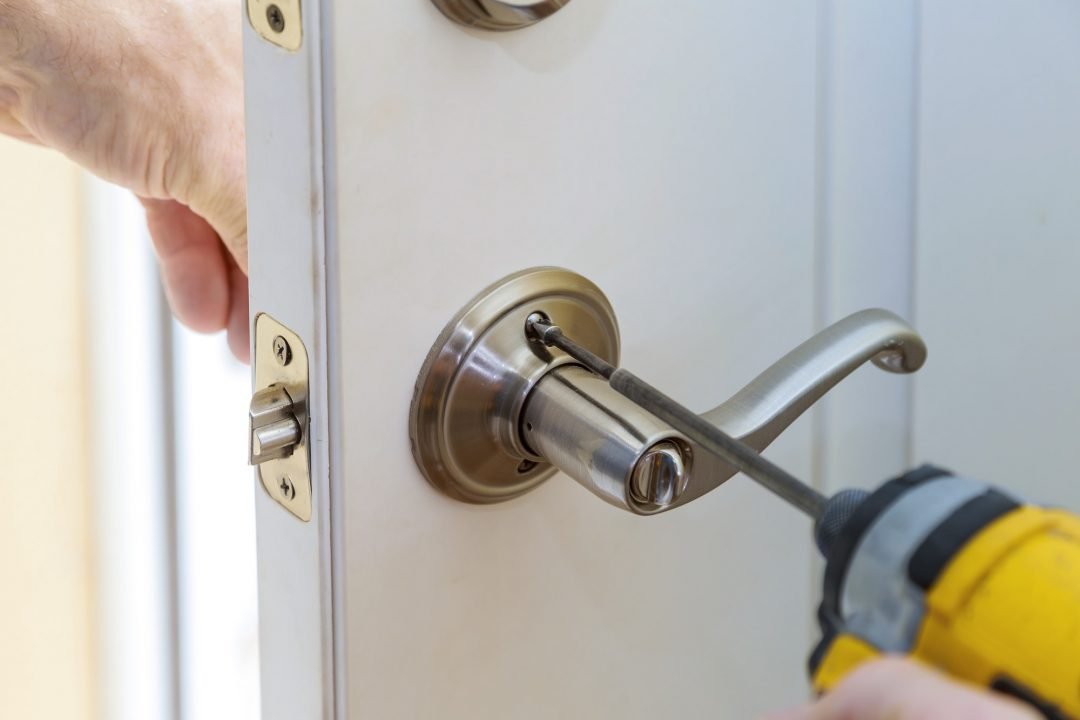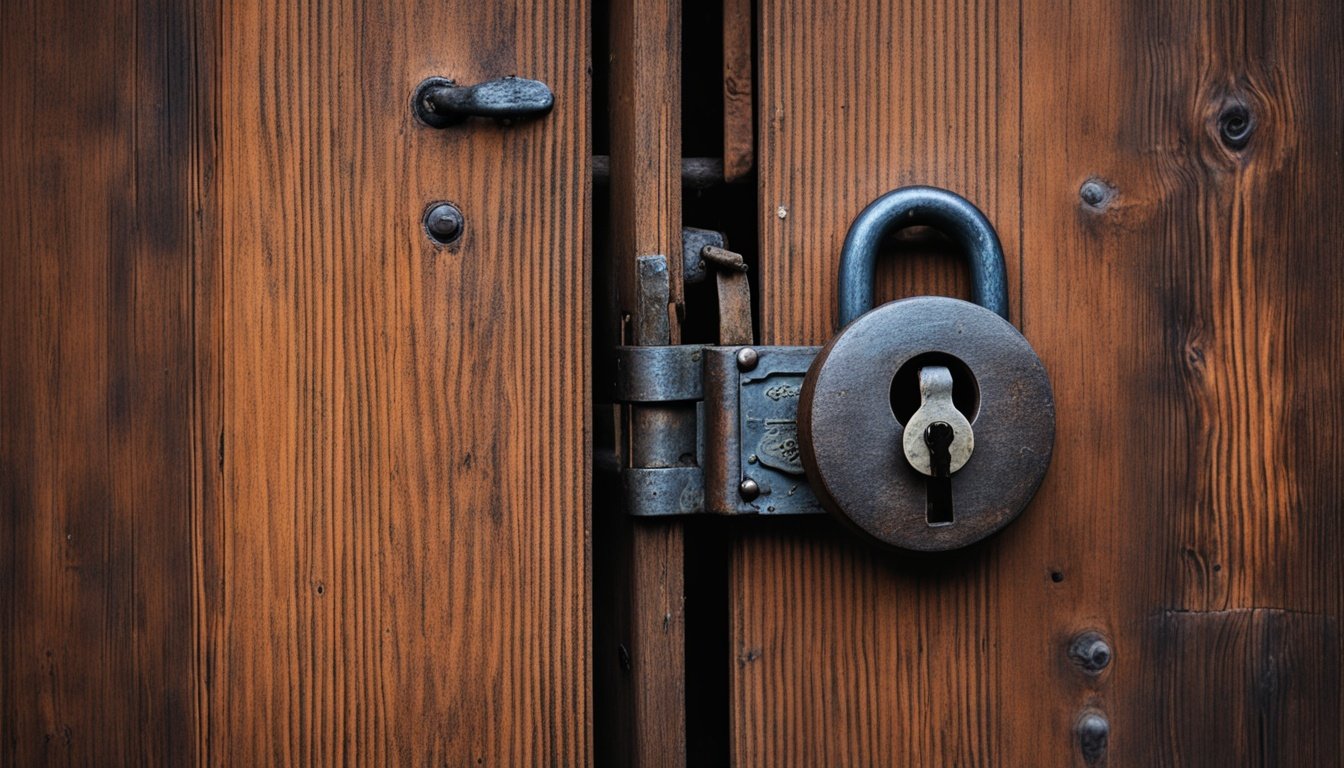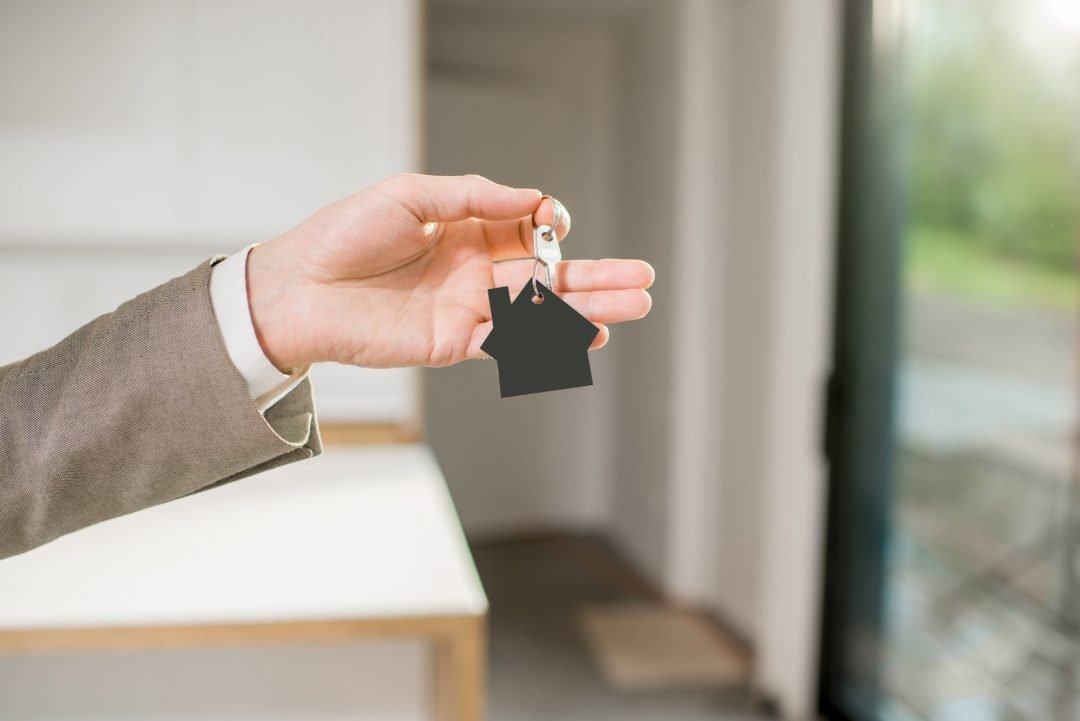Knowing when to change your locks is key to keeping your home safe. Many people don’t think about this often, but it’s crucial. You should update your locks when you move, hire new staff, or if they’re old and worn out. Getting advice from a locksmith can help you make smart choices.
Meeting with a skilled locksmith regularly can help you check your locks and make them safer. They can tell you when it’s time for a change.
Key Takeaways
- Homeowners should consider changing locks every 5-7 years for optimal security.
- Businesses need to update locks every few years or when there’s a change in key personnel.
- Landlords are advised to replace locks between tenants to maintain security.
- Smart locks should be updated every 3-5 years to leverage enhanced features.
- Regular maintenance can extend lock life and potentially save costs in the long run.
- Rekeying is a cost-effective solution if keys are lost or stolen, recommended over full lock replacement.
Understanding the Importance of Lock Changes
Changing your locks often is key to keeping your home safe. New locks stop unauthorized entry, keeping you and your stuff secure. The choice of when to change locks depends on your property’s situation and the locks you use.
Enhancing Security for Your Home
It’s vital to protect your home with good security steps. Changing locks often helps keep your home safe. This stops burglars and gives you peace of mind. Many people don’t think about how often they should change locks.
Working with a professional locksmith for regular lock checks can spot weak spots. They can suggest the best updates.
Vulnerability Due to Outdated Locks
Old locks don’t work well and can be broken into easily. It’s important to update locks often, especially if they’re old. You should change locks right away if you’ve bought a new home, had a break-in, or are renting it out. Doing this keeps your home safe and stops future problems.
| Situation for Change | Recommended Action |
|---|---|
| New homeowner | Change locks immediately after moving in |
| Burglary experience | Change all locks and assess security needs |
| Lost or stolen keys | Change locks for enhanced security |
| Previous tenants | Change locks before new tenants move in |
| Damaged locks | Replace locks to maintain home safety |
| Years without change | Perform lock audits and change if necessary |
How Often Should You Change Your Locks
Knowing when to replace your locks is key to keeping your home safe. Experts say you should change locks every 5-7 years. But, some situations might call for a change sooner. Understanding what you need can help keep your home secure.
General Recommendations for Homeowners
Several signs show it’s time for a lock upgrade. New homeowners often forget to change locks, which is important to keep out previous owners or their contacts. Losing keys means you should act fast to stop others from getting in. If your home has been broken into, changing locks right away is crucial to boost security and stop future break-ins.
Lock Changing Frequency for Different Situations
Lock change needs vary with different situations. Here are some common cases and what to do:
| Situation | Recommendation |
|---|---|
| Moving into a new home | Change locks immediately |
| Loss of keys | Contact a locksmith for immediate replacement |
| After a break-in | Change locks right away |
| Eviction of tenants | Change locks for new tenant’s security |
| Roommate moving out | Change locks to maintain security |
| Home renovations | Change locks post-renovation |
When to Change Locks After Moving In
When you move into a new home, it’s crucial to change the locks right away. The security risks with previous key holders can put your property at risk. Previous owners might have given spare keys to friends, family, or workers. Without updating the locks, you won’t know who could still have access to your home.
Security Risks with Previous Key Holders
It’s important to understand the security risks to keep your new home safe. Not changing the locks can lead to:
- Unauthorized entry by unknown individuals
- Increased anxiety about personal safety
- The possibility of theft or property damage
Starting with basic steps is key to protecting your home. Changing locks soon after moving in helps you feel secure. This action greatly lowers the risks of unknown access points.
Peace of Mind for New Residents
After updating your locks, you’ll feel more at ease. Knowing no one else has keys to your home lets you relax. For many, this peace of mind is worth the cost of changing locks. Rekeying locks costs between $40 to $100, which is less than replacing them entirely, which can be hundreds of dollars.
Experienced locksmiths can help with this process quickly. For instance, Clockwork Locksmiths has over 20 years of experience and can rekey your locks in one visit. Their speed and skill make it easy for new homeowners to secure their space, reducing stress about moving.
| Action | Cost Range | Time Required |
|---|---|---|
| Rekeying Locks | $40 – $100 | Quick (single visit) |
| Replacing Locks | Varies (couple of hundred dollars) | Longer (depends on complexity) |
By taking these simple steps, you can enjoy your new home safely, avoiding risks from previous key holders.
Recognizing Signs It’s Time to Change Your Locks
Locks are key to keeping your home safe. They often show signs that it’s time for a change. Knowing when to update your locks can stop security issues and give you peace of mind.
Wear and Tear Indicators
Locks face wear and tear over time, which can weaken their security. Watch for these signs:
- Visible rust or corrosion on the lock.
- Difficulty turning the key or engaging the lock.
- Unusual sounds or resistance when locking or unlocking.
- Cracks or physical damage to the lock casing.
These signs can make your locks less reliable and less secure. Regular checks can spot these issues early. This lets you take action before a bigger problem happens.
Locks Malfunctioning
If your locks don’t work right often, you should fix them quickly. Signs of malfunction include:
- Keys getting stuck or failing to turn.
- Locks not aligning properly with the door frame.
- Difficulty in locking or unlocking a door.
These issues can mess up your daily routine and raise the risk of unwanted visitors. Keeping up with maintenance and replacing locks quickly can boost your security. This is especially true after a security issue or if you’ve lost your keys.
Lost or Stolen Keys: Taking Immediate Action
When you lose or have your keys stolen, your property’s security is at risk. It’s important to act fast to protect against unauthorized access. A locksmith can help by ensuring your peace of mind and security.
Potential Risks of Compromised Keys
Lost or stolen keys can lead to serious security issues. In Perth, over 70% of stolen car keys are taken, not lost. Many people first call the police when their car keys go missing. This is because a police report is needed for insurance claims. Sadly, nearly 60% of people find their insurance covers the cost of new locks or keys after theft.
It’s not just about getting new keys. In about 45% of cases, people need keys that can be programmed. Quick action and a call to a locksmith can keep your car and home safe.
Locksmith Solutions for Lost Keys
Emergency locksmith services are often needed after losing keys, with help arriving in under 30 minutes. A skilled locksmith can replace car keys on-site, even if the originals are gone. They can also program remotes and transponder keys safely.
Using trusted locksmiths like Galmier Locksmith means you get fast and reliable help. They can work with many car brands, from Toyota to Mercedes. It’s smart to tell your car insurance about lost keys, as they might help with locksmith or tow truck costs.
To prevent losing your keys again, think about getting a Bluetooth key finder. Also, pick a spot at home and work to keep your keys. These steps can help keep your keys safe and easy to find.
Security Enhancements After a Break-In
Having your home broken into can be very scary. It’s important to check your locks right away. This helps prevent more break-ins in the future. Checking your locks can show if they need fixing or replacing. Making your home more secure after a break-in is a smart move.
Assessing Lock Damage Post-Incident
Checking your locks after a break-in is key to making your home safer. If your locks are weak, burglars might see your home as an easy target. Look for any signs of damage, rust, or trouble locking and unlocking. If you see these signs, you might need to replace or rekey your locks. Replacing them quickly can stop future break-ins and give you peace of mind.
Upgrading Security Measures
After a break-in, it’s a good idea to add more security. Think about adding deadbolts to your doors for extra protection. Deadbolts make it harder for burglars to get in. Smart locks are also a great choice. They offer more security and make it easy to get in without a key.
It’s a good idea to talk to a professional locksmith, like Border Locksmiths & Electronic Security, for advice on replacing locks. Good locks last about five to seven years, but checking them often keeps your home safe. After a break-in, upgrading your security is a must to protect your home and feel safe again.
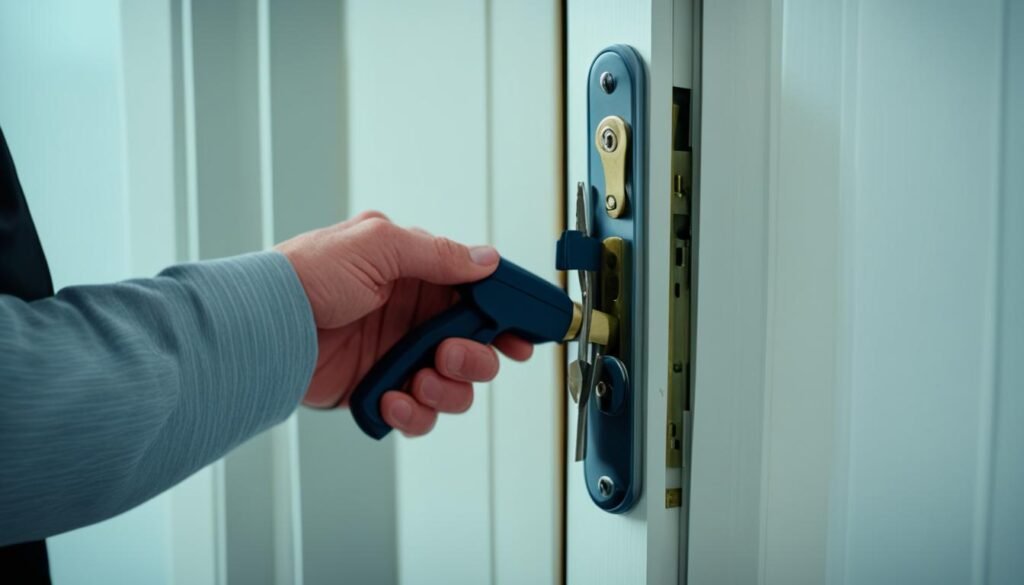
| Security Measure | Effectiveness | Features |
|---|---|---|
| Deadbolt Lock | High | Resistant to forced entry |
| Smart Lock | High | Keyless, smartphone integration |
| Traditional Lock | Medium | Standard access control |
Benefits of Upgrading to Smart Locks
Smart locks bring a big step forward in home security. They offer features that old locks don’t have. These locks make your home safer and improve your life with advanced technology.
Modern Security Features of Smart Locks
Smart locks have the latest security features. They make your home safer. Keyless entry means you don’t need physical keys, so you won’t lose them or have them stolen.
Remote access lets you open or close your door from anywhere with your phone. This adds to the convenience and security. Some locks also track who comes and goes, giving you peace of mind.
Convenience and Remote Access
Smart locks offer more than just security. They’re easy to install and fit into your smart home setup. You can pick a style that matches your home’s look. Managing access for family or guests is easy without physical keys.
These locks are durable and have a long battery life, so they don’t need much upkeep. If you’re ever locked out, there are backup ways to get back in. Over time, smart locks can save you money and give you more security.
Lock Changing Frequency for Rental Properties
Keeping locks secure is key for rental properties. It’s important to change locks often to keep tenants safe. As a landlord, you must ensure a secure place for your renters. Regular lock checks help stop unwanted entry and build trust with your tenants.
Landlord Responsibility for Tenant Security
Changing locks between tenants is a must for landlords. Old renters might have given out extra keys, risking new tenants’ safety. By changing locks, you protect against theft and damage. In many places, you can change locks without needing new keys, unless the lease says otherwise. This makes the living space safer for everyone.
Best Practices for Lock Maintenance
- Regularly check locks for signs of damage or wear.
- Replace locks quickly if they’re damaged to keep things secure.
- Update old locks with new security features.
- Make sure your lease clearly talks about lock rules.
- Have a locksmith ready for tenant lockouts or denied access.
- Give new keys out fast after re-keying to avoid legal problems.
Cost Considerations for Changing Locks
Understanding the cost of changing locks is key to securing your home wisely. Many factors affect the price, offering you different options. Knowing the difference between rekeying and changing locks helps you pick the best for your budget and security.
Factors Influencing Lock Replacement Costs
The cost to change locks at home changes based on several things, including:
- Type of Lock: Basic deadbolts are cheaper, but electronic and high-security ones cost more.
- Installation Complexity: The cost varies with the job’s complexity. Simple jobs are cheaper, but complex ones cost more.
- Security Features: Adding extra security features increases the price.
- Emergency Services: Locksmiths working after hours or for emergencies charge more because they’re in a hurry.
Comparing Rekeying vs. Changing Locks
Often, choosing between rekeying and changing locks can save you money. Rekeying is cheaper, costing less than a full lock replacement. It changes the lock’s inside pins, making old keys useless, yet keeping your home secure.
But, if you want advanced security or top-notch locks, you might need to replace or upgrade them. These options are pricier but offer better security. Thinking about the costs and benefits helps you find the best mix of price and security.
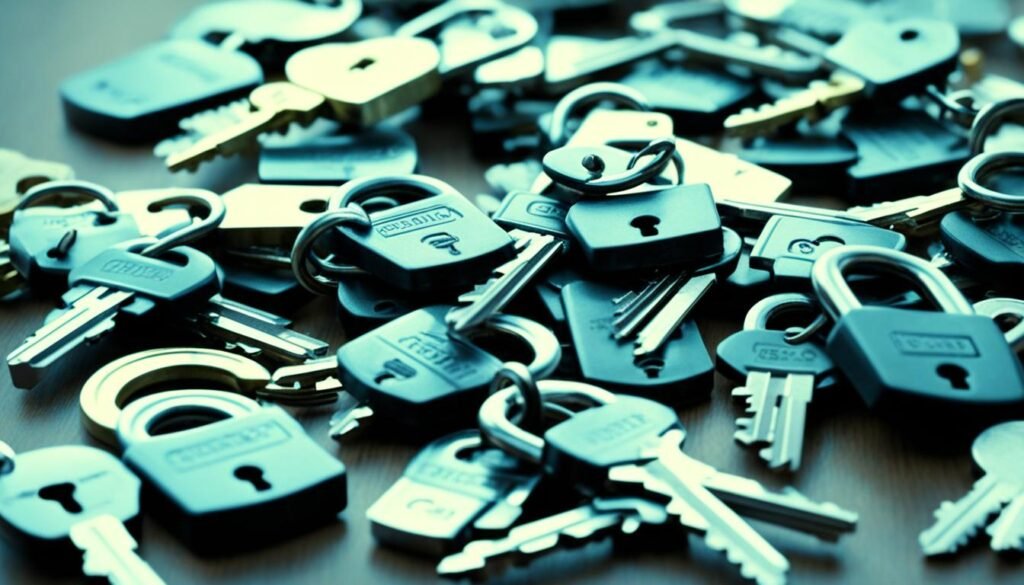
Conclusion
Keeping your home safe is crucial for everyone living there. Changing your locks often is a key step in keeping out unwanted visitors. If your locks look worn or are hard to open, it’s time to act. Locks in this condition can be easily broken into, so it’s important to follow locksmith advice for better security.
When moving or renting, making sure your locks are secure is a must. Old locks should be swapped for newer, smarter ones like smart locks or high-security models. This is especially true for businesses with valuable items. If you’ve lost keys or had a break-in, changing locks ensures only those you trust can enter, boosting your security.
For personalized advice on locks, talk to a professional locksmith. They can help with the best ways to keep your locks in good shape and when to replace them. For expert advice, call us at 0411 026 377 or email at quote@brightonlocksmith.com.au. Don’t forget the importance of keeping your home safe—it’s a key step to a secure living space.

